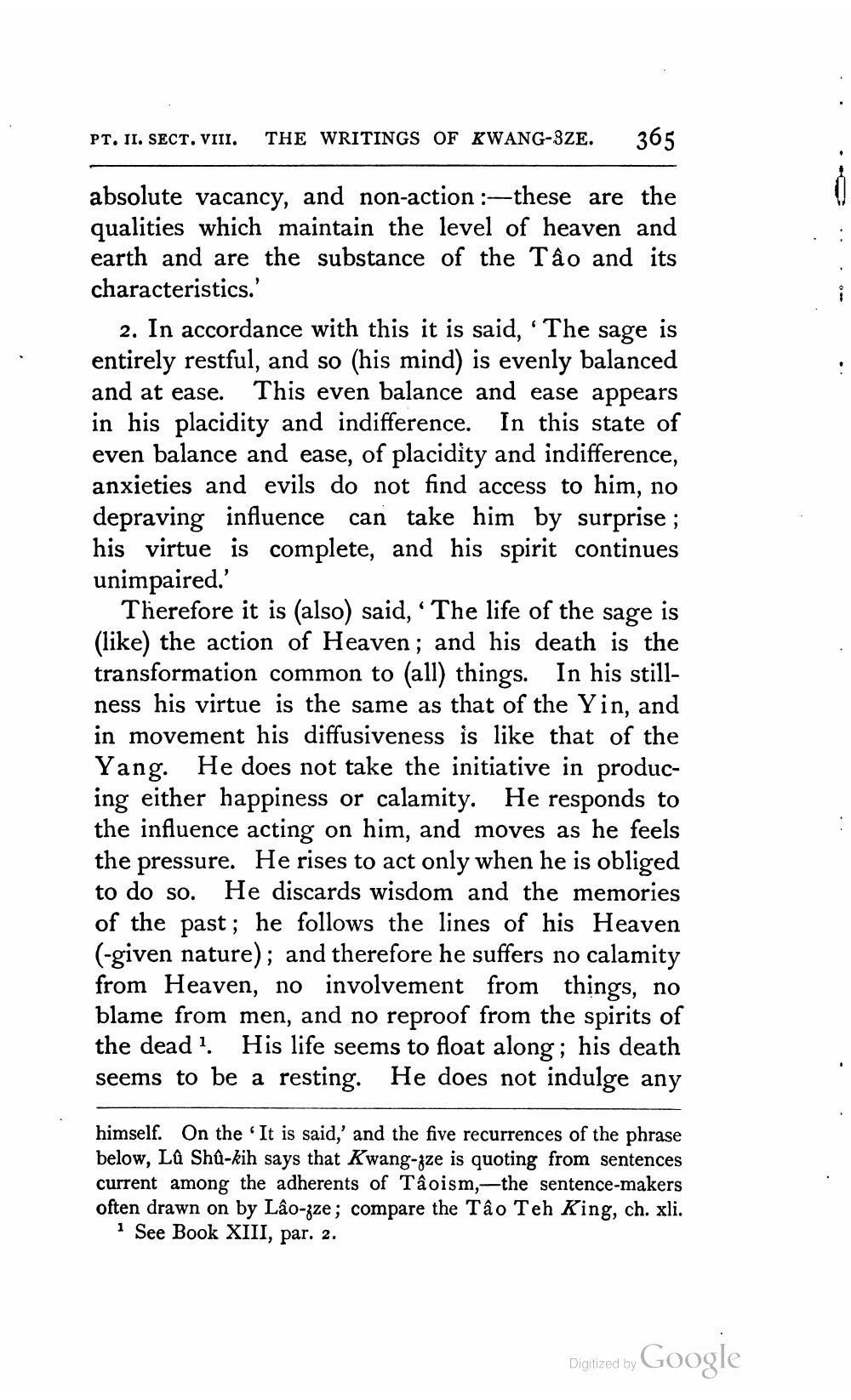________________
PT. II. SECT. VIII. THE WRITINGS OF KWANG-BZE.
365
absolute vacancy, and non-action :—these are the qualities which maintain the level of heaven and earth and are the substance of the Tâo and its characteristics.'
2. In accordance with this it is said, 'The sage is entirely restful, and so (his mind) is evenly balanced and at ease. This even balance and ease appears in his placidity and indifference. In this state of even balance and ease, of placidity and indifference, anxieties and evils do not find access to him, no depraving influence can take him by surprise ; his virtue is complete, and his spirit continues unimpaired.'
Therefore it is (also) said, 'The life of the sage is (like) the action of Heaven; and his death is the transformation common to (all) things. In his stillness his virtue is the same as that of the Yin, and in movement his diffusiveness is like that of the Yang. He does not take the initiative in producing either happiness or calamity. He responds to the influence acting on him, and moves as he feels the pressure. He rises to act only when he is obliged to do so. He discards wisdom and the memories of the past; he follows the lines of his Heaven (-given nature); and therefore he suffers no calamity from Heaven, no involvement from things, no blame from men, and no reproof from the spirits of the dead 1. His life seems to float along; his death seems to be a resting. He does not indulge any
himself. On the It is said,' and the five recurrences of the phrase below, La Shù-kih says that Kwang-zze is quoting from sentences current among the adherents of Taoism,—the sentence-makers often drawn on by Lâo-ze; compare the Tâo Teh King, ch. xli.
i See Book XIII, par. 2.
Digitized by Google




